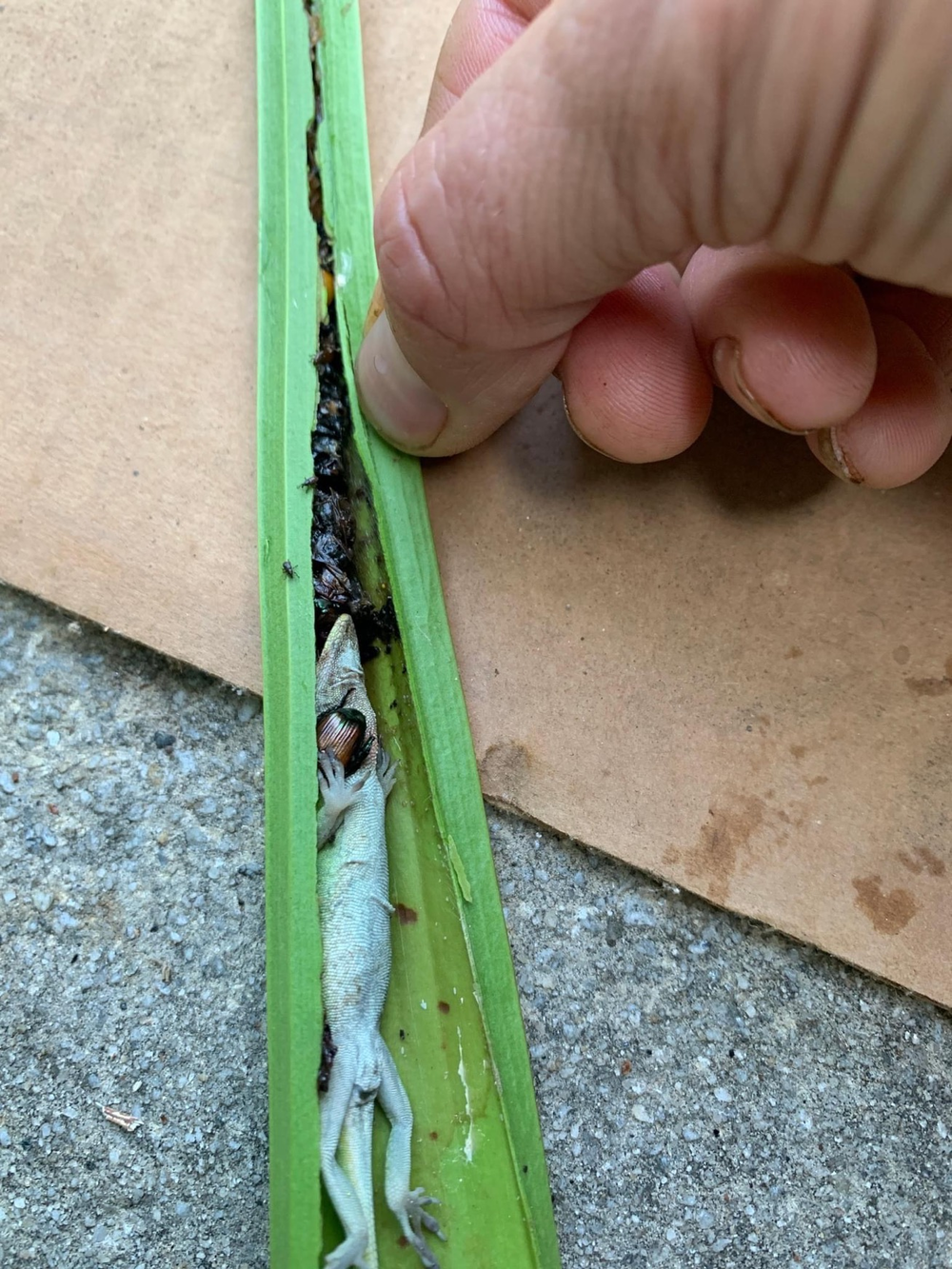
Caption
A dissected carnivorous pitcher plant reveals a lizard amid its usual diet of bugs.
Credit: Department of Natural Resources

A dissected carnivorous pitcher plant reveals a lizard amid its usual diet of bugs.
One of Georgia’s notorious meat-eating plants surprised a group of elementary school students by revealing its last meal — a lizard — was still in the process of being digested.
The discovery was made as a regretful state biologist was dissecting a carnivorous pitcher plant.
“During a routine presentation on native plants with a group of elementary students, our biologists learned a valuable lesson: check the plant before you dissect,” the Georgia Department of Natural Resources wrote in a Sept. 11 Facebook post.
“The plan was to dissect a pitcher plant to show the students its contents, which are typically comprised of beetles and a variety of flying insects. To everyone’s surprise, they found a green anole.”
Photos shared on Facebook show the lizard was nose-down and still intact (except for a hole in its neck) as it sat in one of the plant’s tube-like pitchers.
The reaction of the students was not revealed and state officials did not identify the school.
Green anoles are tree-dwelling, bug-eating lizards that grow to 8 inches in Georgia.
It is suspected the hungry lizard was chasing a bug on the plant when it slipped into the pitcher and became “this plant’s feast.”
“This carnivorous plant attracts insect prey with a combination of scent, gravity and a waxy, slippery substance, forcing prey to fall into the pitcher,” the state wrote.
“In the shaft of the plant, downward-pointing hairs make escape impossible. In the lowest part of the pitcher, there is a pool of liquid that drowns and digests the prey, leaving the exoskeletons to pile up inside.”
Georgia’s 11 types of pitcher plants are in decline due to the draining of wetlands and over collection, the state reports. Pitcher plants are a protected species in Georgia, known to thrive “in acidic soils of open bogs and sphagnum seeps of swamps,” experts say.
The state’s Facebook post about the lesson-gone-grisly got nearly 1,200 reaction and comments as of Sept. 12, with many saying they found the whole thing kind of “cool.”
“Silly me. Wondering if the plant burped,” one commenter wrote.
This story comes to GPB through a reporting partnership with The Telegraph.